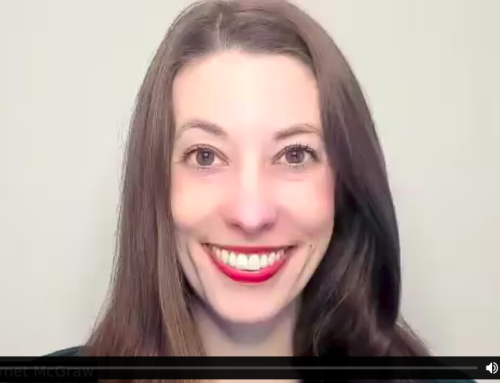One of the most dangerous parts of my psyche is my tendency to think that if I just work harder, then SURELY I can fix it.
This part of me is vulnerable to the “hustle harder” hype, the movie montage fix.
Can you relate?
Do you get swept up in doing more, while refusing to make trade-offs?
Do you try to save dysfunctional relationships, resisting goodbyes?
Do you override your limits, and then wonder why you’re exhausted?
If so, I am with you. I get it.
As I tell coaching clients, the flip side of our greatest strength is also our greatest weakness.
If you’re good at pushing through and getting things done, then you struggle with knowing when enough is enough. If you’re focused and driven, then you probably need remedial lessons in rest.
The tricky part is, there are times when it really does pay off to persist, stay the course, and work harder. And then there are times when the opposite is true.
—
During one such time earlier this year, I said to my husband Jonathan:
“There’s just so much going on. It’s been hard, with everyone getting sick. Our schedule should work … but … I’m so tired. But maybe I just need to get through this week, and then it will be better!”
There I was, on the verge of admitting that my life had become unmanageable. But instead of telling the truth – that our family’s schedule wasn’t working for me – I was trying to convince myself go one more round with it.
I was trying to prove that I could handle it, that I was tough, that I shouldn’t need mercy. That I shouldn’t get help, or move things around, or see how I could make daily life with two small kids easier.
Ever done that? Ever tried to admit how tired you actually are, then backpedaled? Ever clung to the arrival fallacy and the hope that next week would be different … even though you didn’t change anything significant, or ask for help?
Yeah, me too. Coaches aren’t immune!
As I built up steam that day, Jonathan just listened. I concluded my disjointed speech with, “I probably just need to pull myself up by my bootstraps!”
Then I paused.
“But wait. Where does that phrase come from?” We looked at each other, and reached for our phones at the same time.
Here I must pause and say that I love Jonathan’s curiosity and his vocabulary. I love that I live with someone who will look up the origin of a phrase with me, and use the phrase “atavistic memory” in casual conversation. The word nerd in me is very happy.
As the search results for “pull yourself up by your bootstraps” loaded, we talked about the difference between etymology (the study of the origin of words and their meanings), and entomology (the study of insects), and my deep, irrational fear that I will one day mix up these words in conversation.
But then we forgot about that, because we found something fascinating.
According to Jess Zafarris at UselessEtymology.com, the expression, “pull yourself up by your bootstraps” is “attributed to a late-1800s physics schoolbook that contained the example question, ‘Why can not a man lift himself by pulling up on his bootstraps?’
Zafarris goes on,
” … when it became a colloquial phrase referring to socioeconomic advancement shortly thereafter, it was meant to be sarcastic, or to suggest that it was an impossible accomplishment.”
Jonathan and I looked at each other.
“So, you actually CAN’T pull yourself up by your bootstraps?” I asked. “It’s a physical impossibility?”
“Yes, exactly.”
When I told a client about this discovery during a coaching call, she said, “That is GOLD. Please write about it.”
So, here I am. Or rather, here WE are, together, looking over the wreckage of our old way of being.
Isn’t it sobering? We tell ourselves to just try harder, to just pull ourselves up by our darn bootstraps already. But in reality, the expression means the opposite.
We think we’re telling ourselves to get it together and dig deep, but we’re actually demanding that we do the impossible.
We think we’re motivating ourselves, but we’re actually being cruel.
We’re setting impossible standards, then failing to meet them and assuming that WE’RE the problem.
And then we wonder why we have trouble trusting ourselves!
—
Is there an alternative? Is there a way that we can stop demanding the impossible, and instead rebuild trust with ourselves?
Yes, there is.
If this message resonates, here’s what I invite you to do today:
1. Stop trying to pull yourself up by your bootstraps.
It does not work, and is physically impossible. So, surrender and stop trying. (This is what I did when I wised up. I stopped trying to make our existing schedule work. Instead, I made changes to help each day feel easier.)
2. Book your Clarity Call with me.
A Clarity Call is a rare opportunity to work with me one-on-one. Together, we uncover what you really want, what’s stopping you, and what you can do about it. At the end of the call, we discern whether coaching is a mutual fit.
I only open my calendar for these complimentary calls a few times a year, and this is the last opportunity for 2022.
Here’s my hunch: You don’t need brute force or bootstraps to change your life.
Instead, you need a quiet space to meet the truth of who you truly are.
It’s my honor to offer that space to you this week.
Yours,
Caroline
Share This:
Comments
Related Posts


